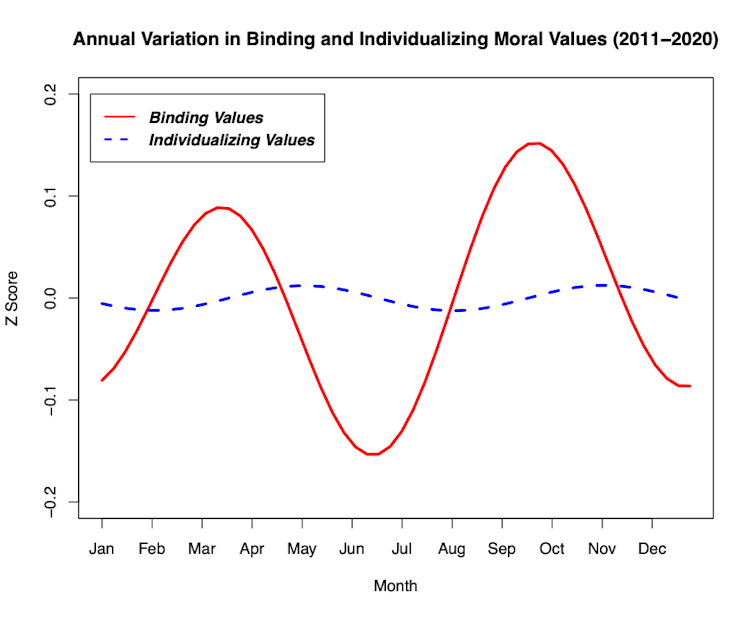By Zahra HirjiOctober 12, 2024

A person walks through flood waters that inundated a neighborhood after Hurricane Milton in Punta Gorda, Florida, on Oct. 10. (Joe Raedle/Photographer: Joe Raedle/Getty I)
(Bloomberg) -- Hurricane Milton may have dissipated over the Atlantic Ocean, but the floodwaters it left across Florida still pose a major risk to human health and safety.
Even though the risk of drowning or getting injured in rising, fast-moving water is past, standing water remains treacherous to navigate and likely harbors dangerous diseases. Walking in it should be avoided at all costs, government officials and health experts warn.
“I think water can be deceiving,” says Seema Wadhwa, executive director for environmental stewardship for the healthcare company Kaiser Permanente. Even if the water looks clear, what’s in there is often a mix of “raw human sewage, septic tanks, wastewater,” she says, which means there’s also often “the presence of bacteria, viruses, parasites.” Those can cause a variety of issues from gastrointestinal distress to skin diseases.
Past hurricanes reveal just how harmful floodwaters can be. There was an 11% increase in North Carolina emergency department visits tied to acute gastrointestinal illness in the three weeks following Hurricane Matthew in October 2016 and Florence in September 2018, a 2022 study found. When Hurricane Harvey hit the Houston area in 2017, emergency room visits for intestinal infectious diseases spiked by 39%, according to a 2021 analysis.
A few days after Milton made landfall in western Florida near Sarasota as a Category 3 storm, the extent of the flood damage — and what’s in all that water — is coming into view. The hurricane dropped record rainfall in several places, including nearly 19 inches (50 centimeters) in St. Petersburg. Initial reports also show the storm surge in many areas on the western coastline was 5 to 8 feet (1.5 to 2.5 meters) above high-tide marks.
The storm caused issues at wastewater facilities leading to overflows that mixed with Milton’s rain and surge, according to treatment plant operators’ filings to the Florida Department of Environmental Protection. On Wednesday night, heavy rains severed a sewer main and caused a spill at the Anastasia Island Wastewater Facility in St. Augustine. Around that same time, some 200,000 gallons of partially treated sewage escaped at the Falkenburg Advanced Wastewater Treatment Facility in Tampa. More waste-related spills occurred on Thursday, including an incident at the water treatment plant in Leesburg involving the release of nearly 2 million gallons of untreated waste.
Sewage and other waste introduce bacteria, among other things, into flooding, which can make people sick. For example, it’s possible flood victims can suffer from gastroenteritis, a stomach illness that can result in abdominal pain, diarrhea, nausea and vomiting, according to Catharina Giudice, an emergency physician, and climate change and human health fellow at Harvard University’s FXB Center. She also warns of the risk of cuts and wounds getting contaminated.
In Florida, health officials have specifically warned about Vibrio infections, another disease that can be life-threatening. "Vibrio is a bacteria that can cause a serious skin infection and it is related to exposure to salt waters," Giudice explains.
Disease isn’t the only concern. Some affected areas still had debris piled up from Hurricane Helene’s strike a few weeks prior, adding another danger to standing floodwaters. People often don’t account for the dangers of detritus hidden below the surface, but it “can really cause some serious injuries,” says Julia Gohlke, an environmental health professor at Virginia Tech who has researched post-hurricane emergency room visits.
Even after waters recede from their flood stage, they still pose a health risk. Standing water can attract mosquitoes, which Giudice warns can spread diseases like dengue. And waterlogged homes can be hotbeds for mold, which can exacerbate asthma, cause new respiratory issues and trigger headaches, Giudice says. Outcomes can be even worse; a 2023 analysis found visits to emergency departments for mold infections spiked in the year after Hurricane Harvey and led to “severe” problems for patients.
--With assistance from Ari Natter.
©2024 Bloomberg L.P.
(Bloomberg) -- Hurricane Milton may have dissipated over the Atlantic Ocean, but the floodwaters it left across Florida still pose a major risk to human health and safety.
Even though the risk of drowning or getting injured in rising, fast-moving water is past, standing water remains treacherous to navigate and likely harbors dangerous diseases. Walking in it should be avoided at all costs, government officials and health experts warn.
“I think water can be deceiving,” says Seema Wadhwa, executive director for environmental stewardship for the healthcare company Kaiser Permanente. Even if the water looks clear, what’s in there is often a mix of “raw human sewage, septic tanks, wastewater,” she says, which means there’s also often “the presence of bacteria, viruses, parasites.” Those can cause a variety of issues from gastrointestinal distress to skin diseases.
Past hurricanes reveal just how harmful floodwaters can be. There was an 11% increase in North Carolina emergency department visits tied to acute gastrointestinal illness in the three weeks following Hurricane Matthew in October 2016 and Florence in September 2018, a 2022 study found. When Hurricane Harvey hit the Houston area in 2017, emergency room visits for intestinal infectious diseases spiked by 39%, according to a 2021 analysis.
A few days after Milton made landfall in western Florida near Sarasota as a Category 3 storm, the extent of the flood damage — and what’s in all that water — is coming into view. The hurricane dropped record rainfall in several places, including nearly 19 inches (50 centimeters) in St. Petersburg. Initial reports also show the storm surge in many areas on the western coastline was 5 to 8 feet (1.5 to 2.5 meters) above high-tide marks.
The storm caused issues at wastewater facilities leading to overflows that mixed with Milton’s rain and surge, according to treatment plant operators’ filings to the Florida Department of Environmental Protection. On Wednesday night, heavy rains severed a sewer main and caused a spill at the Anastasia Island Wastewater Facility in St. Augustine. Around that same time, some 200,000 gallons of partially treated sewage escaped at the Falkenburg Advanced Wastewater Treatment Facility in Tampa. More waste-related spills occurred on Thursday, including an incident at the water treatment plant in Leesburg involving the release of nearly 2 million gallons of untreated waste.
Sewage and other waste introduce bacteria, among other things, into flooding, which can make people sick. For example, it’s possible flood victims can suffer from gastroenteritis, a stomach illness that can result in abdominal pain, diarrhea, nausea and vomiting, according to Catharina Giudice, an emergency physician, and climate change and human health fellow at Harvard University’s FXB Center. She also warns of the risk of cuts and wounds getting contaminated.
In Florida, health officials have specifically warned about Vibrio infections, another disease that can be life-threatening. "Vibrio is a bacteria that can cause a serious skin infection and it is related to exposure to salt waters," Giudice explains.
Disease isn’t the only concern. Some affected areas still had debris piled up from Hurricane Helene’s strike a few weeks prior, adding another danger to standing floodwaters. People often don’t account for the dangers of detritus hidden below the surface, but it “can really cause some serious injuries,” says Julia Gohlke, an environmental health professor at Virginia Tech who has researched post-hurricane emergency room visits.
Even after waters recede from their flood stage, they still pose a health risk. Standing water can attract mosquitoes, which Giudice warns can spread diseases like dengue. And waterlogged homes can be hotbeds for mold, which can exacerbate asthma, cause new respiratory issues and trigger headaches, Giudice says. Outcomes can be even worse; a 2023 analysis found visits to emergency departments for mold infections spiked in the year after Hurricane Harvey and led to “severe” problems for patients.
--With assistance from Ari Natter.
©2024 Bloomberg L.P.



 -
- 









